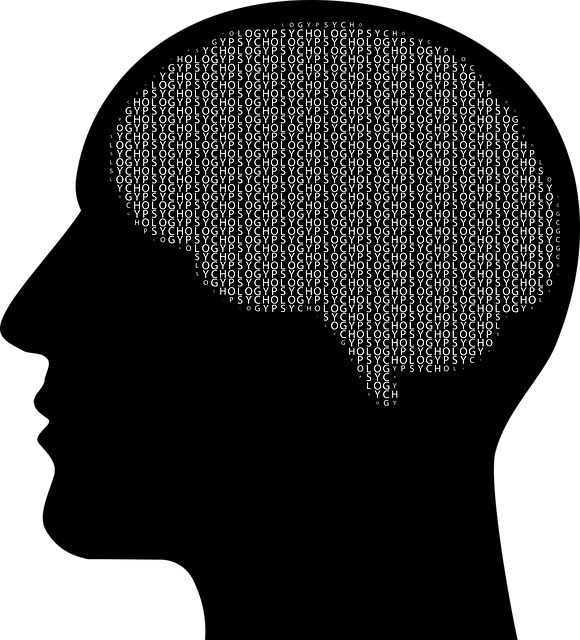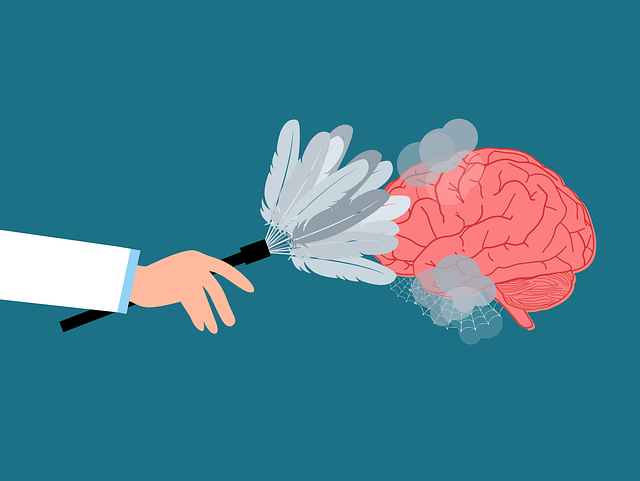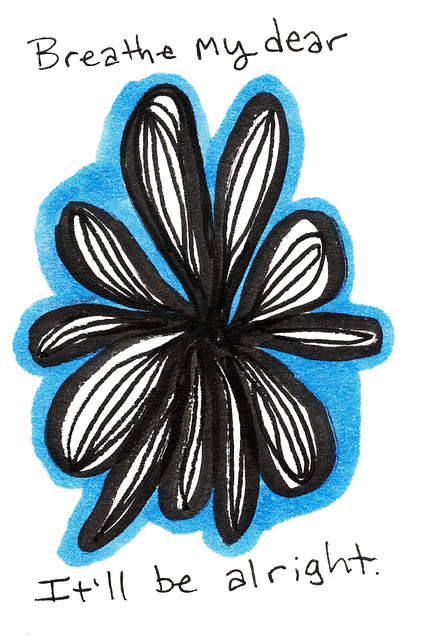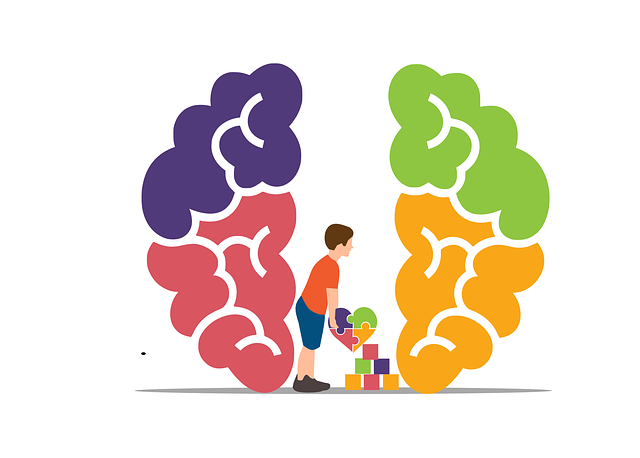Englewood Chronic Pain Therapy offers a holistic, evidence-based RFM (Resilience, Flexibility, Mindfulness) framework for chronic pain management. This approach combines cognitive-behavioral techniques, mindfulness practices, and stress reduction to empower individuals in managing both physical and mental wellness. By focusing on resilience building, emotional strategies, and cultural sensitivity training, Englewood enhances quality of life, prevents depression, and promotes a positive mindset for living with chronic pain. Real-life success stories validate the program's effectiveness in transforming clients' lives through "Mind Over Matter" principles.
“Unraveling the power of Resilience, Frequency, and Moment (RFM) in chronic pain management, this article offers a comprehensive guide to the Englewood Chronic Pain Therapy Approach. We explore how RFM exercises, rooted in evidence-based practices, can significantly enhance patients’ coping mechanisms.
From understanding the core principles to practical implementation strategies for clinicians, we provide an in-depth look at resilience-building techniques. Additionally, real-life success stories highlight the measurable outcomes of this transformative therapy, showcasing its effectiveness in various patient journeys.”
- Understanding RFM and its Role in Chronic Pain Management
- The Englewood Chronic Pain Therapy Approach
- Resilience-Building Exercises: A Comprehensive Guide
- Practical Implementation Strategies for Clinicians
- Real-Life Success Stories: Measuring RFM Outcomes
Understanding RFM and its Role in Chronic Pain Management

Chronic pain is a complex condition that requires a multifaceted approach to management. Here’s where RFM (Resilience, Flexibility, and Mindfulness) steps in as a powerful tool. RFM is not just about coping mechanisms; it’s an evidence-based framework designed to enhance individuals’ ability to navigate life with chronic pain. By focusing on resilience, people can develop the mental fortitude to face challenges associated with their condition.
Englewood Chronic Pain Therapy offers specialized programs that integrate RFM principles into treatment plans. These exercises aren’t just about physical therapy or medication; they empower patients with self-care practices (like mindfulness meditation and cultural sensitivity in mental healthcare practice) that foster flexibility in thinking and behaving. Incorporating these strategies, often taught through Healthcare Provider Cultural Competency Training, can significantly improve a patient’s quality of life, enabling them to better manage pain and embrace a more fulfilling lifestyle.
The Englewood Chronic Pain Therapy Approach

The Englewood Chronic Pain Therapy Approach offers a unique and effective method to tackle chronic pain, integrating physical and mental wellness strategies. This holistic approach recognizes that chronic pain is more than just a physical symptom; it often intersects with psychological aspects such as depression and anxiety. By addressing these interrelated issues, the therapy aims to enhance overall resilience and improve patients’ quality of life.
One of its key principles focuses on empowering individuals to manage their pain through various exercises tailored to their specific needs. These include cognitive-behavioral techniques for mood management, which help reduce the impact of chronic pain on mental health. The program also incorporates mindfulness practices and stress reduction strategies, contributing to the ongoing efforts in mental illness stigma reduction. Through these comprehensive methods, Englewood Chronic Pain Therapy seeks to not only alleviate physical discomfort but also prevent depression and enhance resilience, ultimately fostering a more positive and proactive approach to living with chronic pain.
Resilience-Building Exercises: A Comprehensive Guide

Resilience-building exercises are a crucial component of holistic therapy and personal growth, especially in addressing chronic pain and mental health challenges. At Englewood Chronic Pain Therapy, we understand that developing resilience is an essential skill to navigate life’s difficulties and setbacks. Our comprehensive guide aims to empower individuals to cultivate strength and adaptability through various techniques.
Englewood Chronic Pain Therapy offers a range of exercises tailored to enhance self-awareness and foster mental fortitude. These activities include mindfulness practices, cognitive restructuring, and trauma support services that help individuals process and overcome past traumas. By integrating risk management planning for mental health professionals into daily routines, clients can develop effective coping strategies. Self-awareness exercises play a vital role in this process, allowing individuals to recognize their emotions, thoughts, and triggers, thereby promoting better decision-making and resilience in the face of adversity.
Practical Implementation Strategies for Clinicians

In implementing RFM and resilience building exercises with clients at Englewood Chronic Pain Therapy, clinicians should adopt a multi-faceted approach that integrates both cognitive and emotional strategies. Begin by fostering self-awareness exercises tailored to each individual’s unique experiences and pain perceptions. This can involve guided meditations or journaling practices designed to help patients recognize and express their emotions related to chronic pain. By promoting heightened emotional regulation, clinicians enable clients to manage stress and avoid triggers that may exacerbate pain symptoms.
Clinicians should also incorporate techniques that support emotional healing processes, such as cognitive reframing, mindfulness exercises, and progressive relaxation methods. These practices empower individuals to challenge negative thought patterns associated with their pain and cultivate a more balanced perspective. Through consistent practice, clients at Englewood Chronic Pain Therapy can enhance their resilience, enabling them to navigate life’s challenges without being defined by chronic pain.
Real-Life Success Stories: Measuring RFM Outcomes

Real-Life Success Stories: Measuring RFM Outcomes
At Englewood Chronic Pain Therapy, our approach to resilience building goes beyond mere theory. We measure success by tracking key outcomes that demonstrate improved quality of life for our clients. By integrating Mind Over Matter Principles and Trauma Support Services, we’ve seen remarkable transformations in individuals struggling with chronic pain. Through regular assessments, we identify specific areas where our exercises have made a tangible difference, be it enhanced Stress Management or a greater ability to cope with daily challenges.
These real-life success stories not only validate the effectiveness of our RFM program but also inspire hope and motivation for others seeking relief. By sharing these narratives, we aim to showcase how targeted interventions can lead to profound personal growth and improved overall well-being.
The Englewood Chronic Pain Therapy Approach, grounded in RFM principles, offers a transformative framework for managing chronic pain. By integrating resilience-building exercises into treatment plans, clinicians can empower individuals to navigate pain landscapes with enhanced coping mechanisms and improved quality of life. Real-life success stories highlight the efficacy of this approach, demonstrating that with the right tools and support, individuals can achieve lasting relief and reclaim their lives. For healthcare professionals, adopting these strategies can be a game-changer in chronic pain management, fostering more positive outcomes for patients.














